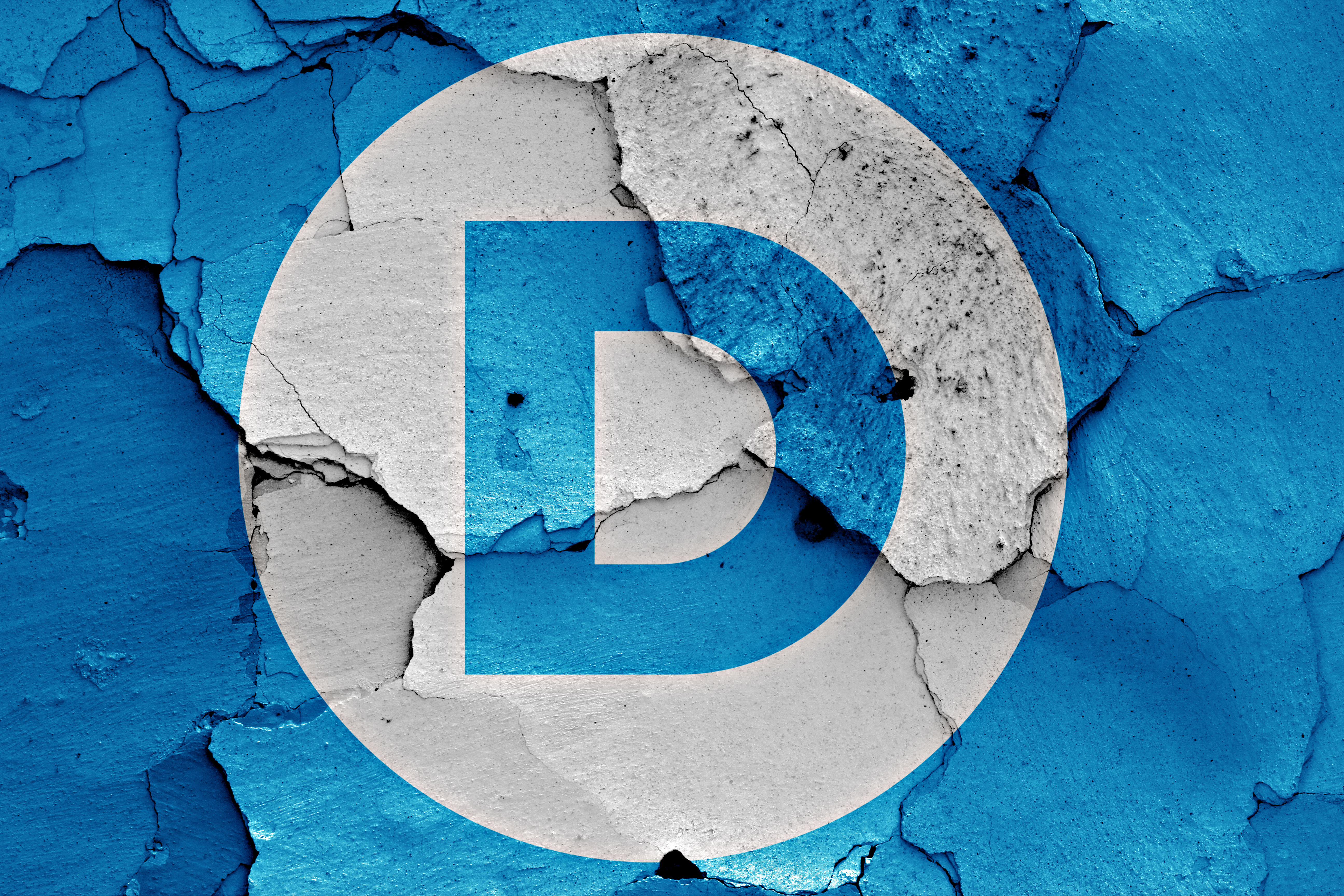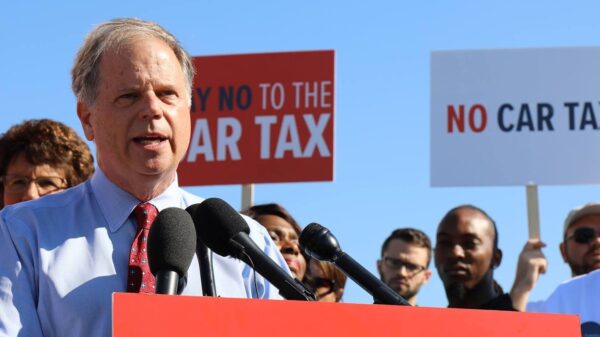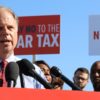|
Getting your Trinity Audio player ready...
|
Alabama Democratic Party Chair Randy Kelley and Vice Chair Tabitha Isner have had a publicly contentious relationship, but they agreed on one thing Wednesday: neither seemed surprised by the findings of a Democratic National Committee hearing officer that the ADP bylaws should be invalidated.
“The facts of the situation were always on our side, so we are pleased, but not surprised, by the report,” Isner said. “The real decision will come on Friday. We are hopeful that the DNC will not only reinstate the 2019 bylaws, but also put in place accountability measures to ensure compliance with those bylaws.”
Although the hearing officer found the bylaws, supported by Kelley, should be invalidated, he said he expected as much from the hearing.
“That really wasn’t a surprise to me — it’s basically what I expected them to say. But what I’m looking forward to is their basis for saying our bylaws don’t meet standards. We have maintained and still maintain that no one lost anything — any representation — from the (new) bylaws,” Kelley said. “And really, the discrimination that they talked about, I took that as projection, because they’re claiming what we’re doing is what white institutions have done to Black folks for a long time. You’ll have to forgive me, I’m somewhat culturally paranoid by institutions controlled by whites and by the white media that takes what they say at face value and pushes it out there.”
Whether the bylaws discriminate against certain members of the party remains a point of contention. The findings by DNC hearing officer Kim Michele Keenan explicitly side with Isner and other challengers on the issue.
“The Hearing Record fully supports that the May 6 Bylaws fail to treat all of the diverse groups equitably,” Keenan wrote in the findings. “This is a fatal defect in the May 2023 Bylaws in violation of both the DNC Charter and Bylaws as well as the October 2019 Bylaws which were put in place to achieve that very goal. The ADP can only win if all Alabama Democrats win, no one should be left out or left behind.”
Keenan points to a drastic decrease particularly in Hispanic and youth representation in the party after the bylaws vote as evidence of the discriminatory impact of the changes that turned minority caucuses into committees.
“The SDEC current list supports the lost opportunity for participation by diverse groups beyond Black Alabama Democrats,” Keenan wrote. “This is particularly true with respect to the participation by Youth and Hispanic groups, whereas Native American and AAPI Democrats simply continue to be left out.”
Kelley has said the change from minority causes to minority committees has not robbed representation from any SDEC members, but Keenan also disagreed with that argument.
“The juxtaposition of Caucus versus Committee is at the heart of the change in the May 2023 bylaws,” Keenan wrote. “The Challengers assert that by reverting to the committee structure, diverse elements of the party lose their own self-determination to select their membership and the system effectively strips the ADP of robust representation.
“Moreover, the committee structure prevents those groups from, among other things, choosing their own at-large members to the SDEC, and restricts their at-large membership to their percentage of the Democratic electorate even though it may be less than their percentage in the population. Further, the 2023 bylaws permit the Executive Committee of the SDEC to select their members. These are material and substantive differences in the participation of AAPI, Hispanics, Native Americans, LGBTQ+ individuals, Youth and People with Disabilities.”
Given the findings from the hearing, APR asked Kelley what would happen if the DNC demanded changes to the bylaws.
“If that’s the case then we’ll make changes,” Kelley said. “But what I’m hoping to see is some sort of compromise between us, because I’ll say again that the bylaws do not discriminate against anyone. That’s not what we’re about. So, I want to hear the full story of exactly what they want us to comply to. No one has lost representation. And in our bylaws, all of these groups are still represented based on their representation in the democratic electorate.”
Josh Coleman, a gay DNC representative from Alabama, said he is “profoundly disappointed to confront the dysfunction within our party on a national stage.”
“Ideally, we would have resolved these issues before they escalated, but as a big tent party, we must address internal challenges,” Coleman said. “The essence of a big tent party lies in fostering diversity among its members and ensuring equal voting rights for all communities within the party. Our strength lies in diversity, and excluding diversity caucuses from the Alabama Democratic Party bylaws sends a signal of exclusion rather than inclusion—a sentiment contrary to the values of our party.”
With the DNC likely to order bylaw changes at its Friday meeting, all sides said they want to turn their focus away from internal arguments and back to the work of the party as a whole.
“I hope that this meeting facilitates resolution, allowing all factions of the Alabama Democratic Party to unite,” Coleman said. “Our collective focus should be on electing Democrats, cultivating the next generation of leaders, and empowering voters to create a positive and inclusive political landscape.”
Kelley shared a similar sentiment.
“The most important thing at this time is for us to get back to focusing on the things that need to be focused on. On telling the story of the Democratic Party and of Joe Biden and what we’ve done to help the poor and the working class and the students and the disenfranchised in this country,” Kelley said. “That’s the story we need to be worried about right now, and I hope we can get back to telling it.
“But I want to make it clear that the Alabama Democratic Party has not discriminated against anyone, and that it will never do so. We welcome all people. We don’t care who it is, we want them in this party and want them to feel welcome.”
The DNC rules committee will meet Friday to consider a response to the challenge of ADP’s bylaws.



















































